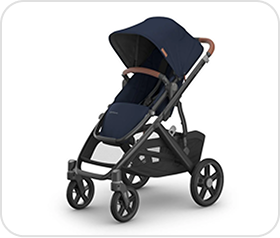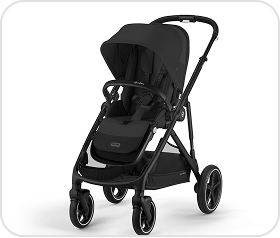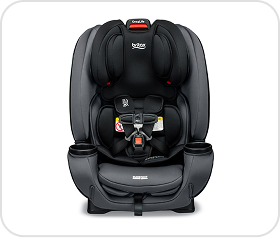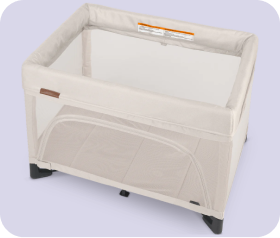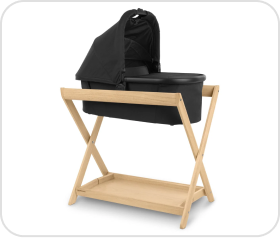How to Get Your Baby to Sleep Through the Night | Sleep Tips for Parents

Here are some practical tips and strategies to help your baby (and you!) enjoy a more restful night:
1. Create a consistent bedtime routine and sleep schedule
Creating a consistent bedtime routine and sleep schedule is important to help foster better sleep. A bedtime routine does not have to be complex. It can be simple: bath (maybe not every night, discuss with your pediatrician), lotion/massage, pajamas, feeding, turn off light, turn on noise maker, bed. You may want to add in a lullaby or book too! Anything that you want to do is fine, just make sure you're consistent. Your baby will begin learning that bedtime is near, and that this is how we settle down for sleep.
A sleep schedule is also recommended. This may not happen for a few months, as newborns sleep all through the day off and on. But even then, you can start with a loose schedule of: play, sleep, eat. This works well even for the first few weeks where playtime may not be longer than 10 minutes at a time. Feeding your baby after they wake can help ensure they consume enough calories and encourage them to fall asleep independently, without relying on feeding as a sleep aid.
2. Create a comfortable sleep environment
Creating a comfortable sleep environment is important for everyone, and babies are no different! What that looks like depends on your set-up, but typically babies do better in a cool, dark space with a sound machine. We love the Hatch and Yogasleep!
Remember, babies must sleep on a flat, firm surface such as a crib or bassinet without any loose blankets or anything in the crib. It's recommended to place baby to sleep on their back. Swaddling is a great sleep tool, but must be stopped once your baby shows any sign of rolling. Most of the time, this happens between 2-4 months of age.

3. Encourage self-soothing
Encouraging your little one to self-soothe will help your baby learn to fall asleep independently, which is crucial for sleeping through the night. If a baby knows how to self-soothe, they can put themselves back to sleep when they stir in the middle of the night. We all wake up in the middle of the night, but we know how to fall back asleep. This is helping them learn how to do that.
Allow your baby the opportunity to fall asleep on their own by giving them the opportunity to self-soothe. This might involve letting them fuss for a few minutes before going in to comfort them, gradually increasing the time before intervening.
4. Monitor daytime sleep/naps
Believe it or not, making sure your baby is getting enough restful sleep during the day can really help your baby sleep through the night. Sleep begets sleep: the idea that getting enough sleep during the day helps a child sleep better at night. An overtired baby can actually lead to more night wake-ups!
However, this also means making sure their napping isn't interfering with their daytime feeds, which we will discuss below. You may need to wake your baby up if it's time to eat.

5. Feed strategically
Make sure your baby is getting enough calories during the day so they reduce the amount of calories they need overnight. Do not let your baby go longer than 3 hours before a meal during the day. If they are napping and it's approaching that time, wake them up to feed.
Also, some babies may benefit greatly from a "dream feed" before you go to bed. This is simply getting them out of their bed, and attempting to feed them one last time before you go to bed, filling their bellies up! This works really well for many babies!
6. Avoid overstimulation before bed
This is true for all of us! Avoiding overstimulation - lights, sounds, noisy toys, blaring TV - will help promote a more restful sleep!
7. Respond to night wakings appropriately
When your baby wakes overnight, don't just assume that they need to eat. Like adults, babies can wake for all different reasons: needing a new diaper, being uncomfortable, needing a pacifier, etc. Determining if it's something else first, and seeing if you can soothe them back to sleep should be your first step. If they're hungry, of course feed them.

7. Be patient and flexible
Every baby is different, and what works for one might not work for another. Be prepared for some trial and error and adjust your approach as needed.
8. Try sleep training
If all else fails, and your older baby is waking multiple times a night to feed, it may be time to explore sleep training! Sleep training gets a bad reputation, but there are many ways to sleep train. Researching what one works for your baby and your family is key! Helping teach your baby how to sleep is part of many skills we teach our children through their childhood.
Sleep products we love here at Strolleria include:
See this blog post on Best Cribs and Newborn Sleep Gear for Babies for more product suggestions!
Have more questions? Contact us at customercare@strolleria.com or chat with us today!




































